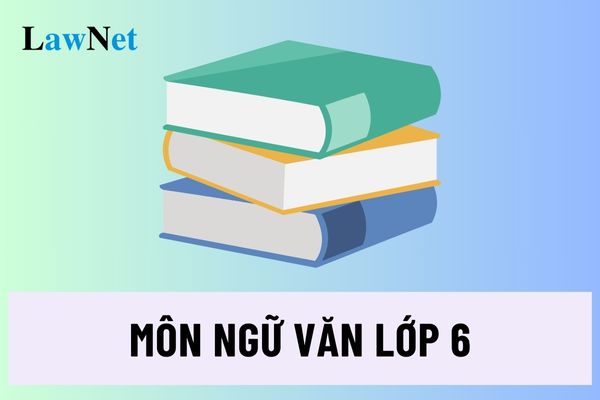What do 6th Grade students study in Literature program for grade 6 in Vietnam?
What do 6th Grade students study in Literature program for grade 6 in Vietnam?
Based on Subsection 2 Section 5 of the General Education Literature Program issued together with Circular 32/2018/TT-BGDDT, 6th-grade students get exposed to the following content when studying Literature:
*VIETNAMESE LANGUAGE KNOWLEDGE
- Simple words and compound words, compound words and reduplicative words
- Multiple-meaning words and homonyms
- Meanings of some common idioms
- Meanings of some common Sino-Vietnamese elements (e.g., "bất," "phi") and meanings of words containing those Sino-Vietnamese elements (e.g., "bất công," "bất đồng," "phi nghĩa," "phi lí")
- The main components of the sentence: expanding the main components of the sentence using phrases
- Adverbs: characteristics, sentence-linking functions
- The use of semicolons (marking boundaries between parts in a complex series); quotation marks (indicating understanding of a word in its non-ordinary meaning)
- Literary devices such as metaphor, metonymy: characteristics and effects
- Paragraph and text: characteristics and functions
- Choosing words and some sentence structures appropriate to express the meaning of the text
- Types of texts and genres
+ Narrative text: essay recounting a personal experience, essay recounting a folk tale
+ Descriptive text: essay describing daily activities
+ Expressive text: "Luc bat" poetry; paragraph recording feelings when reading a "Luc bat" poem
+ Argumentative text: opinions, reasoning, evidence; essay presenting views on an incident in study or life
+ Informational text: title, lead, headings, bold text, numerical order, and bullet points; explanatory text recounting an event; minutes recording an incident or a meeting, discussion
- Language development: phenomenon of borrowing words, borrowed words, using borrowed words
- Nonverbal communication tools: images, statistics
*LITERARY KNOWLEDGE
- Expressiveness of a literary text
- Details and relationships between details in a literary text
- Topic, theme of the text; feelings and emotions of the writer
- Elements: plot, character, narrators and characters' speech in legends, fairy tales, fables
- First-person narrators and third-person narrators
- Formal elements of "Luc bat" poetry: number of syllables, number of lines, rhyme, rhythm
- Title, line of poetry, stanza, rhyme, rhythm, words, and their effects in the poem
- Narrative, descriptive elements in poetry
- Recording form, storytelling method, first-person narrators in memoirs or travel journals
Additionally, 6th-grade Literature texts include:
(1) Literary texts
- Legends, fairy tales, fables, short stories
- Poetry, "Luc bat" poetry
- Memoirs or travel journals
(2) Argumentative texts
- Social arguments
- Literary arguments
(3) Informational texts
- Text recounting an event
- Minutes recording
- Content summary charts
>> More details can be foundthe General Education Literature Program issued together with Circular 32/2018/TT-BGDDT:

What do 6th Grade students study in Literature program for grade 6 in Vietnam? (Internet image)
Must 6th-grade Vietnamese literature textbooks meet the teaching conditions of the school in Vietnam?
Based on Article 3 of Circular 27/2023/TT-BGDDT on the criteria for selecting textbooks:
Criteria for selecting textbooks
1. Suitable to the socio-economic characteristics of the locality.
2. Suitable to the teaching and learning conditions at the educational institution.
The selected 6th-grade literature textbooks must be suitable for the teaching conditions at the school.
How old are 6th-grade students under regulations in Vietnam?
Based on the provisions of Clause 1 Article 28 of the Education Law 2019:
Levels of study and age in general education
1. Levels of study and age in general education are defined as follows:
a) Primary education is conducted over 5 years, from grade one to grade five. The age of students entering the first grade is 6 years old, calculated according to the year;
b) Lower secondary education is conducted over 4 years, from grade six to grade nine. Students entering the sixth grade must have completed primary school. The age of students entering the sixth grade is 11 years old, calculated according to the year;
c) Upper secondary education is conducted over 3 years, from grade ten to grade twelve. Students entering the tenth grade must have a lower secondary school diploma. The age of students entering the tenth grade is 15 years old, calculated according to the year.
2. Cases where students are overage or underage for the stipulated age in Clause 1 of this Article include:
a) Students who skip grades in the case of early intellectual development;
b) Students who are overage for the stipulated age in cases of repetition, those living in areas with particularly difficult socio-economic conditions, those who are ethnic minorities, those with disabilities, those with poor physical or intellectual development, orphans without support, those from poor households, students returning from abroad, and other cases as stipulated by law.
...
Except in cases of repeating a grade or entering school earlier or later than the specified age, it can be determined that 6th-grade students are 11 years old.

